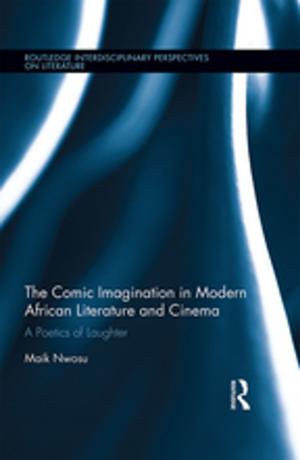| Author: | H. Shmuel Erlich | ISBN: | 9780429920370 |
| Publisher: | Taylor and Francis | Publication: | May 1, 2018 |
| Imprint: | Routledge | Language: | English |
| Author: | H. Shmuel Erlich |
| ISBN: | 9780429920370 |
| Publisher: | Taylor and Francis |
| Publication: | May 1, 2018 |
| Imprint: | Routledge |
| Language: | English |
The book bridges the conceptual and practical gap between a psychoanalytic focus on the internal world and the dynamics of external reality by examining an array of junctures in which the two perspectives combine to enrich each other. Starting from the inherent bias of the psychoanalytic immersion in working with the internal world, the book deals with a wide array of phenomena in which a binocular perspective is potentially contributing. One such bridge is exemplified by the Group Relations approach, which richly combines psychoanalytic insights with systemic ones. This unique merger is valuable in studying a variety of phenomena both within psychoanalysis and outside it. The work of the analyst in the psychoanalytic setting implies situating oneself on several boundaries - internal and external, love and admiration as well as death and destructive impulses - and the courage and sacrifice demanded by taking up this role. This binocular perspective has significant implications for the formation and maintenance of identity and particularly for the psychoanalytic identity.
The book bridges the conceptual and practical gap between a psychoanalytic focus on the internal world and the dynamics of external reality by examining an array of junctures in which the two perspectives combine to enrich each other. Starting from the inherent bias of the psychoanalytic immersion in working with the internal world, the book deals with a wide array of phenomena in which a binocular perspective is potentially contributing. One such bridge is exemplified by the Group Relations approach, which richly combines psychoanalytic insights with systemic ones. This unique merger is valuable in studying a variety of phenomena both within psychoanalysis and outside it. The work of the analyst in the psychoanalytic setting implies situating oneself on several boundaries - internal and external, love and admiration as well as death and destructive impulses - and the courage and sacrifice demanded by taking up this role. This binocular perspective has significant implications for the formation and maintenance of identity and particularly for the psychoanalytic identity.















